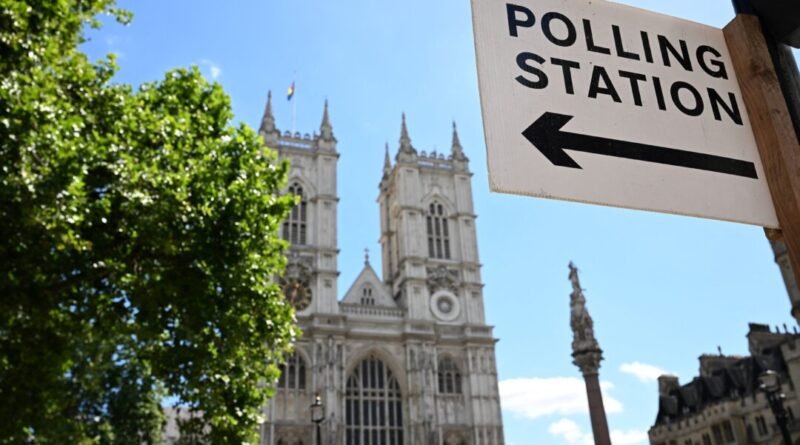Study Shows Lowest Voter Turnout Since Universal Suffrage
A report from the Institute for Public Policy Research found that 48 percent of adults in the UK did not vote in the most recent general election.
Only just over half of adults in the UK cast a vote in the last general election, report released on Friday has revealed.
The study by the Institute for Public Policy Research (IPPR), which describes itself on X as “the UK’s leading progressive think tank,” put the voter turnout at 52 percent, the lowest since universal suffrage was introduced in 1928.
Titled “Half Of Us: Turnout Patterns at the 2024 General Election,” the report stated: “One-half of adults in this country voted at the 2024 general election.
“This is the lowest share of the population to vote since universal suffrage. Even among registered voters, only three in every five cast a ballot. If non-voters were a party, they would have been the largest party by some distance.”
Other official statistics have put the turnout at 59.9 percent, but that was only taking account the number of people who were registered to vote, rather than the total UK adult population.
The 2001 general election had a lower turnout for registered voters of 59.4 percent, but the IPPR report states: “We estimate 52.8 per cent of the voting age population (and 59.9 per cent of registered voters) cast a ballot at the 2024 general election.
“By comparison, we estimate 57.7 per cent of the voting age population (and 59.4 per cent of registered voters) cast a ballot at the 2001 general election, the only other election with comparably low turnout since the end of the first world war.”
The report found that constituencies with a large proportion of over 64s, wealthy homeowners, and white people had much higher turnout rates than constituencies where more people were younger, less well off, renting, or from ethnic minorities.
The IPPR said that turnout was 11 percent higher in constituencies with the highest proportion of over 64-year-olds compared to the lowest and 13 percent higher in those with the highest proportion of homeowners compared to the lowest.
Conversely, turnout was seven percent lower in constituencies with the highest proportion of people from ethnic minority backgrounds compared to the lowest.
It was also found that turnout was 10 percent lower in areas with the largest proportion of Muslim people compared to areas with the least.
The result of this, the report alleges, is that the drop in turnout is exacerbating the gap between the “haves” and “have nots” saying that the former “speak much louder” in British democracy.
“This is one way to make sense of policy puzzles in the heart of our democracy,” according to the report.
“Why have we allowed housing to become so unaffordable? Why have we tolerated income and wealth inequality to rise and remain high? Why have we protected pensions but not social security for working people?”
To address this, the report calls on the new Labour government to introduce a “modernising elections bill” in its first King’s Speech.
It argues that this legislation should aim to increase turnout and reduce inequalities at elections, by introducing, among other things, “automatic or assisted voter registration and extending the franchise to 16- and 17-year-olds.”
The IPPR also argues the suggested bill should implement stronger rules regarding the donations made to political parties in Britain.
Labour vs Tory
The 2024 election saw the Tories leave government for the first time since 2010 returning the lowest number of MPs in its history with a total of 121.
Labour by contrast secured an enormous majority with a net gain of 211 seats compared with its notional total at the last election in 2019 of 201.
This is Labour’s biggest increase in MPs from one general election to the next since the end of the Second World War.
Despite these huge gains the party also ended up with the lowest ever share of the vote for a majority at a general election taking just 33.8 percent of the votes cast.





